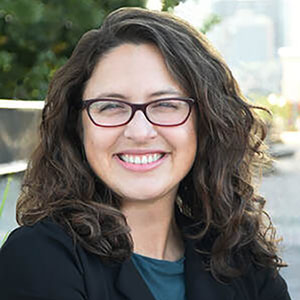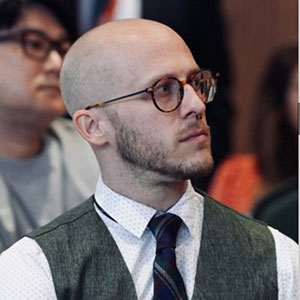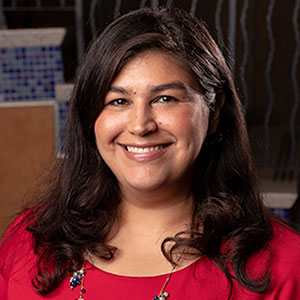 Dr. Anna Erwin is an environmental social scientist that has led and participated in numerous research projects that investigates how and why people experience and adapt to climate change and the ways that community-based organizations respond. For her dissertation, she conducted a 5-month ethnography that investigated the capacity of a faith-based organization to provide opportunities for meaningful participation in organizational activities for migrant and seasonal farmworkers in North Carolina. She also conducted intensive qualitative fieldwork on climate change in Peru, interdisciplinary research on climate change adaptation, and qualitative research in Indiana that investigated how farmers and farmworkers perceive and adapt climatic and other social-ecological change. Most recently, she worked with an interdisciplinary team of researchers from UTRGV and the University Rafael Landivar in Guatemala to investigate how people are using everyday adaptations to respond to climate change in the El Corredor Seco (Dry Corridor) of Guatemala. At UTRGV, Dr. Erwin leads the Environment and Society Research Group, where she mentors one undergraduate and four masters students on research that investigates how people experience social-ecological change and the ways that organizations respond. This research includes a USDA-funded project she leads where she and her students are partnering with a community-based organization in the LRGV to use qualitative and quantitative methods to study how farmworkers experience social-ecological change and the ways that local organizations are responding.
Dr. Anna Erwin is an environmental social scientist that has led and participated in numerous research projects that investigates how and why people experience and adapt to climate change and the ways that community-based organizations respond. For her dissertation, she conducted a 5-month ethnography that investigated the capacity of a faith-based organization to provide opportunities for meaningful participation in organizational activities for migrant and seasonal farmworkers in North Carolina. She also conducted intensive qualitative fieldwork on climate change in Peru, interdisciplinary research on climate change adaptation, and qualitative research in Indiana that investigated how farmers and farmworkers perceive and adapt climatic and other social-ecological change. Most recently, she worked with an interdisciplinary team of researchers from UTRGV and the University Rafael Landivar in Guatemala to investigate how people are using everyday adaptations to respond to climate change in the El Corredor Seco (Dry Corridor) of Guatemala. At UTRGV, Dr. Erwin leads the Environment and Society Research Group, where she mentors one undergraduate and four masters students on research that investigates how people experience social-ecological change and the ways that organizations respond. This research includes a USDA-funded project she leads where she and her students are partnering with a community-based organization in the LRGV to use qualitative and quantitative methods to study how farmworkers experience social-ecological change and the ways that local organizations are responding.
 Dr. Kevin Jobe is a political and legal philosopher whose work explores the ways borders shape distinctions between the self and the “other.” His research critically examines how political categories such as “undocumented,” “unhoused,” “noncitizen,” “nonwhite,” and “friend/enemy” are historically constructed and performed. He currently serves as an Assistant Professor of Philosophy at the University of Texas Rio Grande Valley, where he teaches courses in the Pre-Law Concentration in Philosophy (B.A.) and the Legal Studies Minor within the Department of Political Science. Dr. Jobe is also deeply committed to project-based service-learning pedagogy, integrating community engagement into philosophical inquiry and education. Dr. Jobe earned his Ph.D. in Philosophy from Stony Brook University, where he was introduced to political philosophy through a doctoral seminar on the political philosophy of religion co-taught by Jürgen Habermas and Eduardo Mendieta. His academic trajectory led him to explore the intersections of political philosophy and law, culminating in a Master of Jurisprudence from St. Mary’s University School of Law in 2021. His most recent work investigates the political philosophy of “natural” borders, with particular attention to the Rio Grande River.
Dr. Kevin Jobe is a political and legal philosopher whose work explores the ways borders shape distinctions between the self and the “other.” His research critically examines how political categories such as “undocumented,” “unhoused,” “noncitizen,” “nonwhite,” and “friend/enemy” are historically constructed and performed. He currently serves as an Assistant Professor of Philosophy at the University of Texas Rio Grande Valley, where he teaches courses in the Pre-Law Concentration in Philosophy (B.A.) and the Legal Studies Minor within the Department of Political Science. Dr. Jobe is also deeply committed to project-based service-learning pedagogy, integrating community engagement into philosophical inquiry and education. Dr. Jobe earned his Ph.D. in Philosophy from Stony Brook University, where he was introduced to political philosophy through a doctoral seminar on the political philosophy of religion co-taught by Jürgen Habermas and Eduardo Mendieta. His academic trajectory led him to explore the intersections of political philosophy and law, culminating in a Master of Jurisprudence from St. Mary’s University School of Law in 2021. His most recent work investigates the political philosophy of “natural” borders, with particular attention to the Rio Grande River.
 Dr. Robledo is a doctoral-level epidemiologist with experience conducting research on a broad range of environmental health, and behavioral research topics. Dr. Robledo has obtained degrees from Texas A&M University (B.S.), Texas A&M University Health Sciences Center (MPH) and the University of Oklahoma Health Sciences Center (PhD). She has also completed a post-doctoral fellowship within the Eunice Kennedy Shriver National Institute of Child Health and Human Development, Division of Intramural Population Health Research. Dr. Robledo is also an Oklahoma Leadership Education in Neurodevelopmental and Related Disabilities (OKLEND) Fellow, an interdisciplinary leadership education program funded by the federal Maternal and Child Health Bureau in the US Health Resources and Services Administration. She served for three years as an Assistant Professor and Director of the MPH Maternal and Child Health program, Department of Behavioral and Community Health at The University of North Texas Health Sciences Center.
Dr. Robledo is a doctoral-level epidemiologist with experience conducting research on a broad range of environmental health, and behavioral research topics. Dr. Robledo has obtained degrees from Texas A&M University (B.S.), Texas A&M University Health Sciences Center (MPH) and the University of Oklahoma Health Sciences Center (PhD). She has also completed a post-doctoral fellowship within the Eunice Kennedy Shriver National Institute of Child Health and Human Development, Division of Intramural Population Health Research. Dr. Robledo is also an Oklahoma Leadership Education in Neurodevelopmental and Related Disabilities (OKLEND) Fellow, an interdisciplinary leadership education program funded by the federal Maternal and Child Health Bureau in the US Health Resources and Services Administration. She served for three years as an Assistant Professor and Director of the MPH Maternal and Child Health program, Department of Behavioral and Community Health at The University of North Texas Health Sciences Center.
She is currently a tenured Associate Professor in the Department of Population Health & Biostatistics at the University of Texas Rio Grande Valley, School of Medicine. Her primary research interests have focused on assessing the impact that environmental chemicals (i.e. bisphenol-A, phthalates, persistent organic pollutants and air pollution) have on maternal and child health.
Dr. Robledo has also sought funding to leverage her experience and expertise to expand her research portfolio in the AD/ADRD field. She obtained pilot funding from the RGV AD-RCMAR and a career development award from the National Institute on Aging STAC to examine how exposures to persistent organic pollutants impact the aging brain in humans. She has also sustained funding from the NIH Community-Engagement Research Alliance Against COVID-19 in Disproportionately Affected Communities Consortium (see www.TexasCeal.org) to conduct research aimed at understanding how pandemic conditions impact mental health and well-being and increase COVID-19 vaccine confidence in Mexican American populations. Most recently, she was awarded funding by the Health Resources Services Administration (6 UR6MC50345‐01‐03) to build sustainable community partnerships to build regional capacity to conduct maternal health research in Hispanic women.
Dr. Robledo is the director of UTRGV's Maternal Health Research Center and will also help lead the community engagement core for the Rio Grande Valley Cancer Health Disparity Research Center (RGV-CHDRC).

